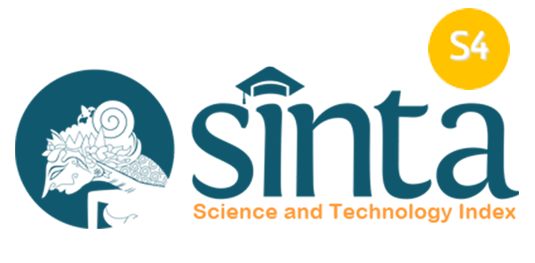Science Teachers’ Lived Experiences and Challenges during COVID-19 Pandemic
Abstract
Keywords
Full Text:
PDFReferences
al Darayseh, A. (2020). The impact of COVID-19 pandemic on modes of teaching science in UAE schools. Journal of Education and Practice, 11(20), 110-115.
Ciotti, M., Ciccozzi, M., Terrinoni, A., Jiang, W. C., Wang, C. B., and Bernardini, S. (2020). The COVID-19 pandemic. Critical Reviews in Clinical Laboratory Sciences, 57(6), 365-388.
De Villa, J. A., and Manalo, F. K. B. (2020). Secondary teachers ' preparation, challenges, and coping mechanism in the pre-implementation of distance learning in the new normal. IOER International Multidisciplinary Research Journal, 2(3), 144-154.
Eddles-Hirsch, K. (2015). Phenomenology and educational research. International Journal of Advanced Research, 3(8), 251-260.
Henry, D. B., Tolan, P. H., and Gorman-Smith, D. (2005). Cluster analysis in family psychology research. Journal of Family Psychology, 19(1), 121.
Ibrahim, B., and Mishra, N. (2016). College radio as a mechanism for participatory learning: Exploring the scope for online radio-based learning among undergraduates. Higher Learning Research Communications, 6(1), 21-34.
Klapproth, F., Federkeil, L., Heinschke, F., and Jungmann, T. (2020). Teachers' experiences of stress and their coping strategies during COVID-19 induce d distance teaching. Journal of Pedagogical Research, 4(4), 444-452.
Lateef, F. (2020). Maximizing learning and creativity: Understanding psychologic al safety in simulation-based learning. Journal of Emergencies, Trauma and Shock, 13(1), 5-14.
Linton, J. N. (2017). Institutional factors for supporting electronic learning communities. Online Learning Journal, 21(1), 238-256
Lu, H., Stratton, C. W., and Tang, Y. W. (2020). Outbreak of pneumonia of unknown etiology in Wuhan. China:themystery and themiracle. Journal of Medical Virology, 92, 401–402.
Marek, M. W., Chew, C. S., and Wu, W. C. V. (2021). Teacher experiences in converting classes to distance learning in the COVID -19 pandemic. International Journal of Distance Education Technologies (IJDET), 19(1), 89-109.
Neubauer, B. E., Witkop, C. T., and Varpio, L. (2019). How phenomenology can help uslearn fromthe experiences of others. Perspectives on Medical Education, 8, 90-97.
Okai-Ugbaje, S., Ardzejewska, K., and Imran, A. (2020). Readiness, roles, and responsibilities of stakeholders for sustainable mobile learning adoption in higher education. Education Sciences, 10(3), 49.
Padilla P., Brenda C., Armellini., and Traxler, J. (2021). The forgotten ones: How rural teachers in Mexico are facing the COVID-19 pandemic. Online Learning, 25(1), 253-268.
Pianta, R. C., Stuhlman, M. W., and Hamre, B. K. (2002). How schools can do better: Fostering stronger connections between teachers and students. New Directions for Youth Development, 2002(93), 91-107.
Pokhrel, S., and Chhetri, R. (2021). A literature review on impact of COVID-19 pandemic on teaching and learning. Higher Education for the Future, 8(1), 133 -141.
Robosa, J., Paras, N., Perante, L., Alvez, T., and Tus, J. (2021). The experiences and challenges faced of the public school teachers amidst the COVID-19 pandemic: A phenomenological study in the Philippines. International Journal of Advance Research and Innovative Ideas in Education, 7(1), 10-6084.
Sadeghi, M. (2019). A shift from classroom to distance learning: Advantages and limitations. International Journal of Research in English Education, 4(1), 80-88.
Tabor, J. W. (2021). Chaos: Exploring an engaging online model for rapid application during the pandemic. Educational Technology Research and Development, 69(1), 97-100.
Zhao, G. F., and Xie, D. B. (2017). Misunderstanding, difficulties and breakthrough of innovative teaching in China's universities. Journal Higher Education Managemen, 1(1), 113–118.
DOI: https://doi.org/10.17509/ijotis.v2i2.49554
Refbacks
- There are currently no refbacks.
Copyright (c) 2022 Universitas Pendidikan Indonesia

This work is licensed under a Creative Commons Attribution-ShareAlike 4.0 International License.
Indonesian Journal of Teaching in Science (IJoTIS) is published by Universitas Pendidikan Indonesia (UPI)
 Indonesian Journal of Teaching in Science
Indonesian Journal of Teaching in Science



